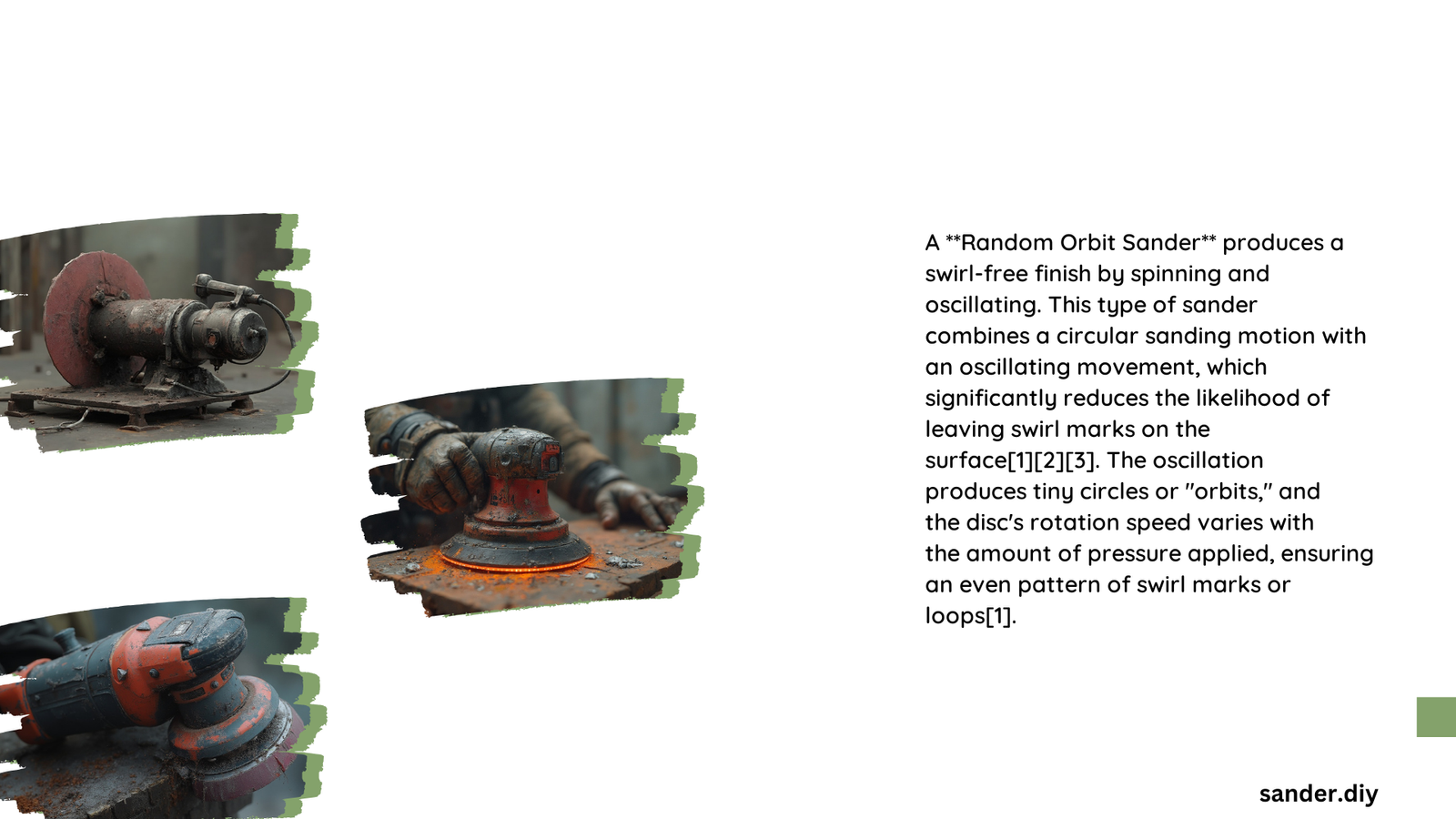Random orbital sanders that combine spinning and oscillating motions are best for achieving a swirl-free finish. These sanders, such as the Dynabrade Dynorbital Supreme and Ingersoll Rand models, feature specific orbit diameters and RPM ranges that minimize swirl marks. Proper technique, including grit progression and optimal pressure, is crucial for swirl-free results. This article explores the top sanders and methods for achieving flawless finishes.
What Are the Key Features of Swirl-Free Sanders?
Random orbital sanders that produce swirl-free finishes typically share these characteristics:
- Dual motion: Spinning and oscillating
- Specific orbit diameters: Usually 3/16\” (5 mm) or smaller
- High RPM: Often around 12,000 RPM
- Vacuum-ready design: For efficient dust collection
- Low vibration: Ensures smooth operation and user comfort
Which Brands Offer the Best Swirl-Free Sanders?

Two leading brands in swirl-free sanding technology are:
- Dynabrade
- Ingersoll Rand
Let’s examine their top models:
Dynabrade Dynorbital Supreme
- Orbit Diameter: 3/16\” (5 mm) for swirl-free finishes
- Pad Size: 5\” (127 mm) and 6\” (152 mm) options
- RPM: 12,000
- Features: Vacuum-ready, low vibration, weight-mated sanding pad
- Price Range: $200 – $500
Ingersoll Rand Random Orbital Air Sanders
- Orbit Diameter: 5 mm (3/16\”)
- RPM: 12,000
- Features: Vacuum-ready, low vibration, designed for high-quality finishes
- Price Range: $200 – $400
How Does Orbit Diameter Affect Swirl-Free Finishing?
Orbit diameter plays a crucial role in achieving a swirl-free finish:
- 3/8\” (10 mm): Aggressive sanding, more likely to leave swirl marks
- 3/16\” (5 mm): Ideal for swirl-free finishes on most materials
- 3/32\” (2 mm): Ultra-fine finishes, especially on delicate surfaces
Smaller orbit diameters distribute the sanding action more evenly, reducing the likelihood of visible swirl marks.
What Techniques Ensure a Swirl-Free Finish?
To achieve the best results with your spinning and oscillating sander:
- Use proper grit progression
- Apply optimal sanding pressure
- Follow a consistent sanding pattern
- Ensure efficient dust collection
Grit Progression
Start with coarser grits and progress to finer ones:
- 80-grit: Initial stock removal
- 120-grit: Intermediate smoothing
- 150-grit: Fine smoothing
- 220-grit: Final finish
This progression ensures each grit removes the scratches from the previous one.
Optimal Sanding Pressure
- Apply enough force to keep the pad flat on the surface
- Avoid heavy downward pressure
- Allow the pad to orbit freely for best results
Sanding Pattern
Follow a \”North, South, East, West\” pattern:
- Start at the top of the workpiece
- Move downward in parallel lines
- Repeat the process horizontally
- Overlap each pass by about 1/4 of the pad diameter
This method ensures uniform coverage and scratch removal.
How Does Dust Collection Impact Swirl-Free Finishing?
Efficient dust collection is crucial for achieving a swirl-free finish:
- Removes sanding residue that could cause scratches
- Improves visibility of the work surface
- Extends the life of the abrasive
- Maintains the motor’s smooth operation
Both Dynabrade and Ingersoll Rand sanders offer vacuum-ready designs for optimal dust collection.
What Are the Benefits of Oscillating Sanders for Swirl-Free Finishes?
Oscillating sanders offer several advantages:
- Reduced heat buildup: Prevents damage to the work surface
- Even material removal: Ensures a uniform finish
- Improved dust collection: Enhances finish quality and tool longevity
- Versatility: Suitable for various materials and finishes
How Do User Ratings Reflect Sander Performance?
User ratings for both Dynabrade and Ingersoll Rand sanders are generally high:
- Dynabrade Dynorbital Supreme: Praised for performance and durability
- Ingersoll Rand Models: Highly rated for ease of use and consistent results
These ratings reflect the sanders’ ability to produce swirl-free finishes consistently.
By choosing the right sander and employing proper techniques, you can achieve professional-grade, swirl-free finishes on a variety of surfaces.
References:
1. Dynabrade Dynorbital Supreme Random Orbital Sanders
2. Ingersoll Rand Random Orbital Air Sanders
3. Swirl Free Check List – Dynabrade
